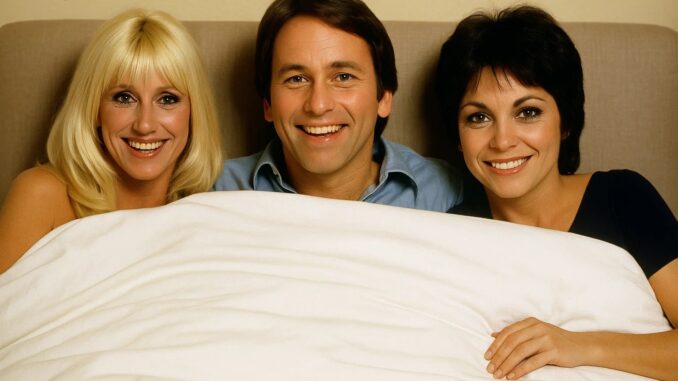
Many fans believe that without Three’s Company, the sitcom landscape we know today would look very different. The show pioneered a unique formula—combining physical comedy, risqué themes, and a strong ensemble cast—that many later sitcoms borrowed from. Series like Friends, New Girl, and even The Big Bang Theory echo the “roommate dynamic” template first perfected by Jack, Janet, and Chrissy.
The brilliance of Three’s Company was that it made everyday situations into comedy gold. Jack pretending to be gay to appease Mr. Roper was both daring and hilarious for its time, a gag that walked the line between controversy and acceptance. Fans point to this as one of the earliest examples of a sitcom addressing issues of sexuality—even if only indirectly—while still maintaining mainstream popularity.
Another reason fans value the legacy of Three’s Company is how it demonstrated the importance of character-driven comedy. The situations were funny, but it was the unique quirks of the characters that made them memorable. Chrissy’s innocence, Janet’s grounding presence, Jack’s over-the-top antics, and the landlords’ ridiculous meddling gave the show layers of humor that appealed to different audiences.
Today, when fans revisit the series, they see the DNA of their favorite modern sitcoms woven into each episode. The laughter from Three’s Company didn’t just end when the series wrapped—it evolved, influencing a new generation of television. Its place in TV history remains secure, and fans continue to celebrate it as a cornerstone of comedy that still delivers laughs decades later.